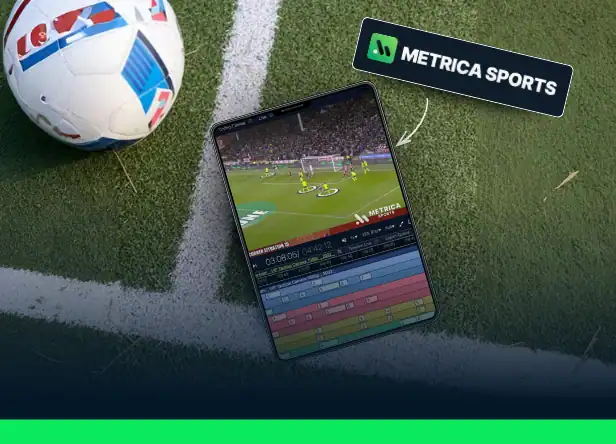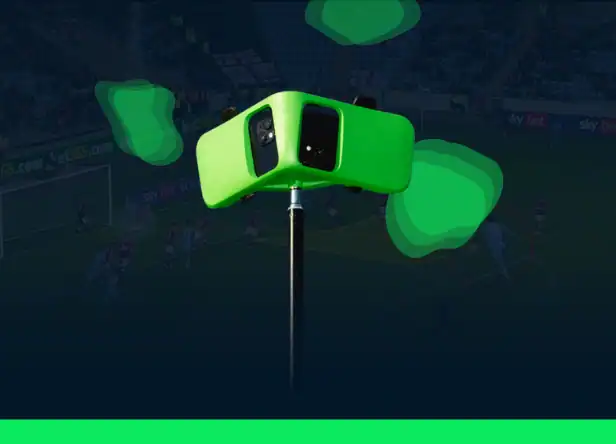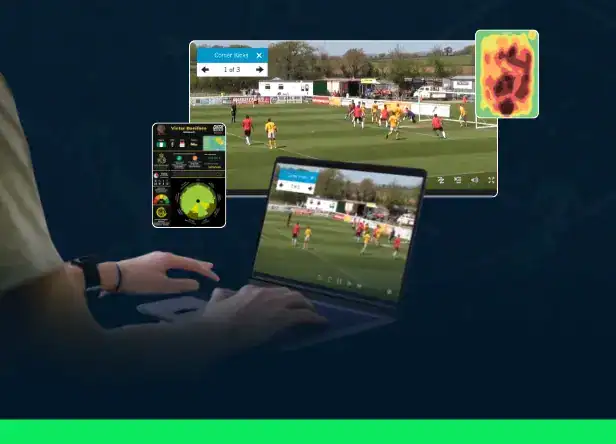With the rise of data and video analysis, the role of a performance analyst has become one of the key pillars of technical staff. This evolution has profoundly changed the way soccer is understood, taught, and prepared, attracting a new generation of enthusiasts: tech-savvy individuals, former players, recent graduates, and coaches seeking greater precision.
What is a performance analyst?
The role of a performance analyst is based on the ability to observe the game objectively, analyze a large amount of data, and turn this information into recommendations for coaches and players.
“The role of the performance analyst is to provide coaches with insights that can positively impact the team’s performance. At the elite level, the performance analyst has become a critical member of the technical staff.”
— FIFA Training Center
How to become a performance analyst?
Starting from scratch? Before hoping to become a performance analyst, you need to truly understand what this job involves. Here is a clear roadmap to help you get started in performance analysis:
Learn to read the game
- Understand the tactical fundamentals: 4-3-3, pressing, transitions, defensive principles…
- Analyse matches objectively after the fact (cold analysis)
- Study the methods of renowned coaches and try to decode their intentions
Learning to read the game in depth is a core skill for becoming a performance analyst.
It starts with a solid grasp of tactical fundamentals (4-3-3, 4-4-2, 3-4-3, etc.), the mechanics of well-executed pressing, transition management and defensive principles, all of which help quickly identify a team’s structure and the imbalances within a match.
This kind of analysis can only be reliable when done calmly, outside the emotional flow of live action, by closely observing sequences of play, collective intentions and structural errors.
Going Further in Game Analysis
Studying the patterns used by well-known coaches deepens this understanding: beyond formations, it’s the logic behind interventions, the management of strong and weak phases of play and the alignment between game plan and player profiles that reveal a performance that is intentional, not merely reactive.
Master analysis tools
- Hudl: for analyzing and annotating videos
- Wyscout: video databases and player statistics
- Excel or Google Sheets: creating custom dashboards
- Python / R: for automating data analysis (optional)
- Power BI / Tableau: for interactive visualizations
Develop your soft skills
- Ability to summarize and synthesize information
- Clear and concise presentation of results
- Collaborative work with coaches and fitness trainers
- Adaptability to diverse cultures and contexts
Gain field experience
Gaining real on-field experience is essential to becoming a performance analyst. Joining a local club, academy or university team as an intern allows you to test your skills against the realities of the game.
You observe daily routines and gain insight into the operational demands of the coaching staff. At the same time, analyzing matches for an amateur team—even on a volunteer basis—helps you build a credible tactical analysis portfolio grounded in real-life situations.
Creating your own PDF reports, breaking down key matches or posting regularly on LinkedIn or X increases your visibility.
Create your network
Building a network within the industry is a key lever for progressing in performance analysis. Joining active analyst communities allows you to exchange insights on tools, methodologies and real-world experiences.
You gain a clearer understanding of the professional standards expected. Attending conferences or webinars focused on sports data exposes you to the latest innovations. It also connects you with key decision-makers in the field and strengthens your credibility within an increasingly structured ecosystem.
Career path and training to become a performance analyst
Whether you’re a student, coach, or simply passionate about the game, there are tailored pathways available to help you acquire all the skills needed to become a performance analyst -from reading the game to mastering video and data analysis tools.
Specialized training programs
At SoccerEDU, we’ve designed our Video Analyst Course to meet the real demands of the field and train the performance analysts of tomorrow. Our goal is clear: to equip you with all the necessary skills to join a technical staff, whether in a professional club, an academy, or a university program.
Our curriculum is built around:
- Several hours of educational content are available online, at your own pace
- Training on the main tools used in performance analysis: Hudl, Wyscout, Nacsport, Metrica Sports
- Hands-on modules to learn how to break down matches, build video clips, and create professional reports
- Create real-life case studies inspired by situations from top-level clubs
- Personalized support and regular feedback to help you make real progress
University programs
For those seeking a longer academic path, several internationally recognized degrees are available:
- Bachelor’s or Master’s Degrees in sport science or performance analysis at universities such as University of South Wales, Loughborough, UConn
- Programs in sports analytics, sports management or kinesiology, offered across North America and Europe.
What is the salary of a performance analyst in soccer?
In the United States, the average salary for a performance analyst is around $75,189 per year.
Here is a table showing the average salaries for this role across various regions and contexts:
| Region / Position | Average annual salary | Average monthly salary |
|---|---|---|
| USA (Performance Analyst) | $75,189 | $6,265 |
| USA (Sports Performance Analyst) | $75,763 | $6,314 |
| USA (Sports Statistical Analyst) | $70,450 | $5,870 |
| USA (New York, Sports Performance Analyst) | $82,259 | $6,854 |
| USA (Pennsylvania, Sport Performance Analyst) | $75,369 | $6,280 |
| UK (Performance Analyst) | £49,042 | £4,087 |
The data comes from ZipRecruiter, Jooble, and Glassdoor, which compile job listings and employer-reported salaries as of June 2025. Figures for continental Europe are based on industry averages drawn from job postings and professional feedback, due to the lack of public resources.
Note: salaries vary depending on experience, club reputation, level of competition, and area of specialization (performance analysis, data, scouting)
What is the role of data and video analysis in this profession?
Data for a performance analyst
Data and video analysis enable the performance analyst to transform every action on the field into usable insights, making it easier to support tactical decision-making at every stage: before, during, and after the match, as well as during the recruitment process.
Pre-match checklist
- A tactical analysis of opponents: weaknesses in pressing, passing tendencies, danger zones
- Preparation of tailored game plans
- Creation of personalized videos for each player
Checklist during the match
- Real-time communication with the staff (via tablet or radio)
- Live data to adapt tactical decisions (substitutions, repositioning)
Checklist after the match
- Comprehensive report (individual and team)
- Evaluation of key sequences (goals, transitions, defensive errors)
- Measurement of physical load and distances covered (via GPS or data tracking)
Recruitment checklist
- Combining statistical data and video analysis to evaluate a player
- Creating player profiles based on the club’s needs
- Assisting sports management in decision-making
What is the difference between a performance analyst and a video analyst?
The main difference lies in their scope of work: the video analyst focuses on the tactical study of matches through video footage, whereas the performance analyst takes a more comprehensive approach, combining physical data, statistics, and video.
The video analyst works hand in hand with the technical staff to decode team movements, prepare pre-match analyses, and illustrate playing principles using software like Hudl or Wyscout.
Meanwhile, the performance analyst also uses these tools to combine them with load indicators, GPS data and advanced statistics to evaluate the progression of both the individual and the team performances.
Becoming a performance analyst, in summary
Whether you are a student, coach, data enthusiast, or former player, opportunities exist as long as you train and practice. Mastery of video analysis and data tools has become a true asset for joining a technical staff. Whether in Ligue 1, the Premier League or MLS, clubs are looking for profiles capable of turning data into concrete actions on the field.





